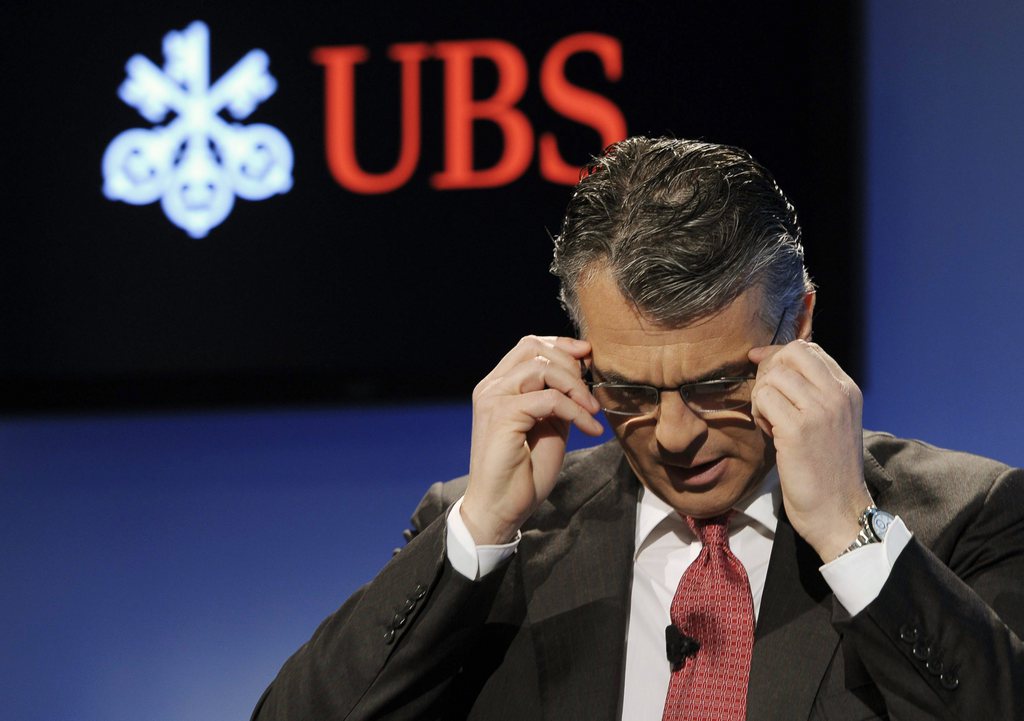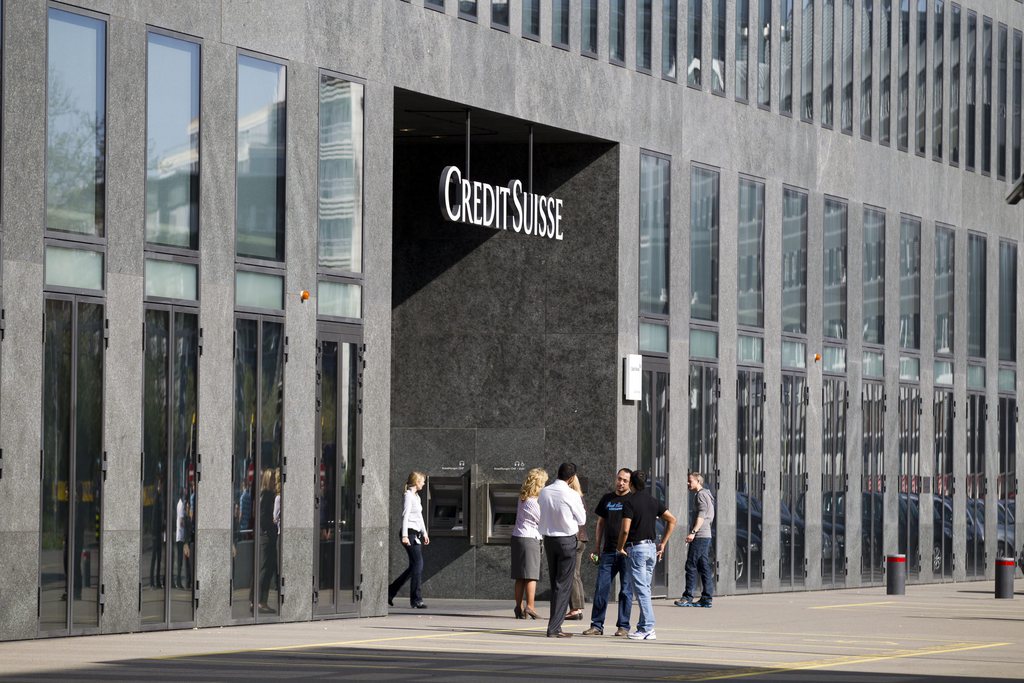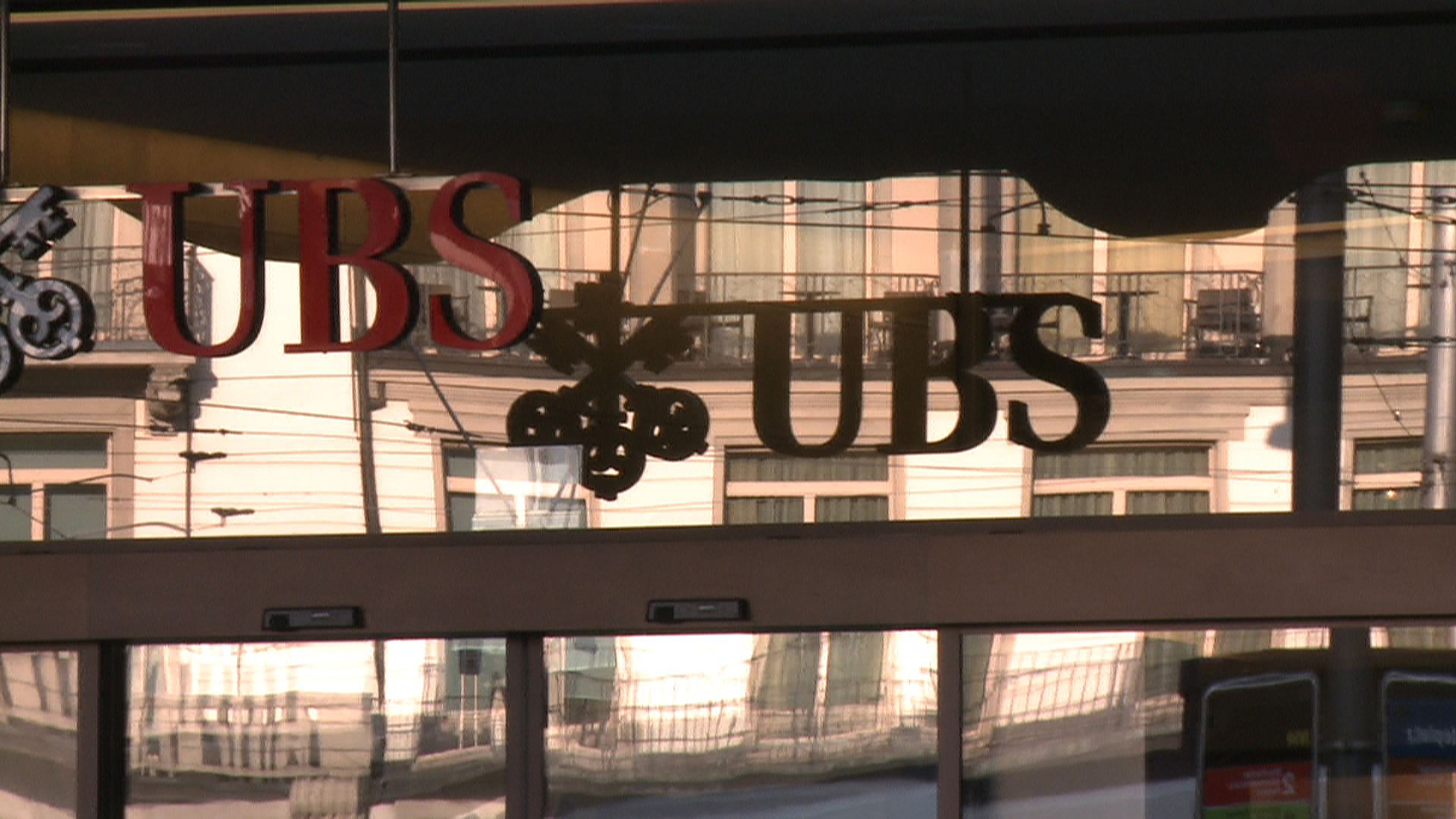UBS announces up to 10,000 job cuts

Banking giant UBS has announced massive layoffs along with huge losses in its third-quarter results, saying it aims to trim as many as 10,000 employees to drastically shrink its ailing investment bank.
Switzerland’s biggest bank said that as part of the cost-cutting drive it “is likely to have a headcount of around 54,000” by 2015, down from its current 64,000 employees among 57 countries. Up to 2,500 employees would be affected in Switzerland, with the rest of the cuts taking place in Britain and the United States.
“This decision has been a difficult one, particularly in a business such as ours that is all about its people,” said CEO Sergio Ermotti. “Some reductions will result from natural attrition and we will take whatever measures we can to mitigate the overall effect. Throughout the process we will ensure that our people will be supported and treated with care.”
The UBS cuts will be one of the biggest bonfires of finance jobs since the implosion of Lehman Brothers, adding to the tens of thousands of jobs the financial sector has shed globally since the financial crisis of 2008.
The union representing bank employees in Switzerland criticised the cuts, calling them “premature”. In a statement, the union said UBS had a particular responsibility to its employees in Switzerland since it was the state that came to the bank’s rescue only four years ago.
Some sources at the bank’s London offices said dozens of fixed income traders had been stopped from entering the premises on Tuesday.
Some staff reportedly turned up to work and were escorted to human resources after they found employee cards no longer worked at the turnstile.
They were told they had two weeks paid leave, after which they were to return to pick up their redundancy package, the sources said.
Sharpened focus
UBS also announced a net loss of SFr2.17 billion ($2.31 billion) for the third quarter, compared with a profit of SFr1.02 billion during the same three-month period last year. This was in large part due to restructuring costs.
The bank also attributed some of the declining profit to a pre-tax charge of SFr863 million linked to an accounting rule on how banks must value their debt.
In what it called “a significant acceleration” in its transformation, the Zurich-based bank said it would sharpen its focus on the investment bank and appoint a new executive to lead it.
Ermotti, in charge for only 13 months, is spearheading the three-year investment banking overhaul that is aimed at saving SFr3.4 billion and returning cash to shareholders.
Ermotti said the investment unit, which has been hit by a series of costly blunders in recent years, will “continue to be a significant global player in its core businesses”.
The Swiss bank will separate many fixed-income activities in order to wind down positions in sectors it will exit due to far tougher capital rules on riskier business.
“We will no longer operate to any significant extent in businesses where risk-adjusted returns cannot meet their cost of capital sustainably or in those with high operational complexity or long-tail risks likely to weigh on future returns,” chairman Axel Weber and Ermotti wrote in a letter to shareholders.
share value
The smaller investment bank will provide backup for UBS’ wealth management activities. It has the second-largest operation of its kind in the world after Bank of America with $1.554 trillion in assets according to a compilation by Scorpio Partnership.
Ahead of the cuts, the value of UBS’s stock rose 7.3 per cent to close at SFr13.12 on the Zurich exchange on Monday.
UBS’s private bank, which won a healthy SFr7.7 billion in net new money from clients in the third quarter, also faces challenges, with profits falling as Swiss banking secrecy is weakened by repeated demands from foreign governments determined to recoup tax on undeclared funds held in offshore accounts.
UBS rival Credit Suisse said last week it was also making more cost cuts as part of efforts to bolster its profits and capital position.
UBS’s troubles started with the subprime mortgage crisis: it had to write down some $50 billion between the end of 2007 and 2009.
In 2008 it made an annual loss of SFr21 billion, the biggest in its history. In the same year the Swiss National Bank was forced to bail out UBS with a SFr6 billion loan and by taking over bad debt.
It was the first Swiss bank to be investigated by US prosecutors for helping US citizens avoid paying tax: in 2009 it was forced to pay a $780 million fine.
The Swiss government subsequently agreed to hand over the names of 4,500 American UBS clients, a serious blow to Swiss banking secrecy.
In 2011 an investment bank trader in London lost UBS SFr1.8 billion in “unauthorised” trading. The trial of the alleged rogue trader is currently ongoing in London.
In the wake of the scandal, chief executive Oswald Grübel, who had been appointed in 2009 to turn the bank around, stepped down. He was replaced by Sergio Ermotti.
UBS has also admitted that some of its traders were caught up in the Libor rate fixing scandal that also involves several other leading global banks. International investigations into the affair are ongoing.

In compliance with the JTI standards
More: SWI swissinfo.ch certified by the Journalism Trust Initiative












You can find an overview of ongoing debates with our journalists here . Please join us!
If you want to start a conversation about a topic raised in this article or want to report factual errors, email us at english@swissinfo.ch.